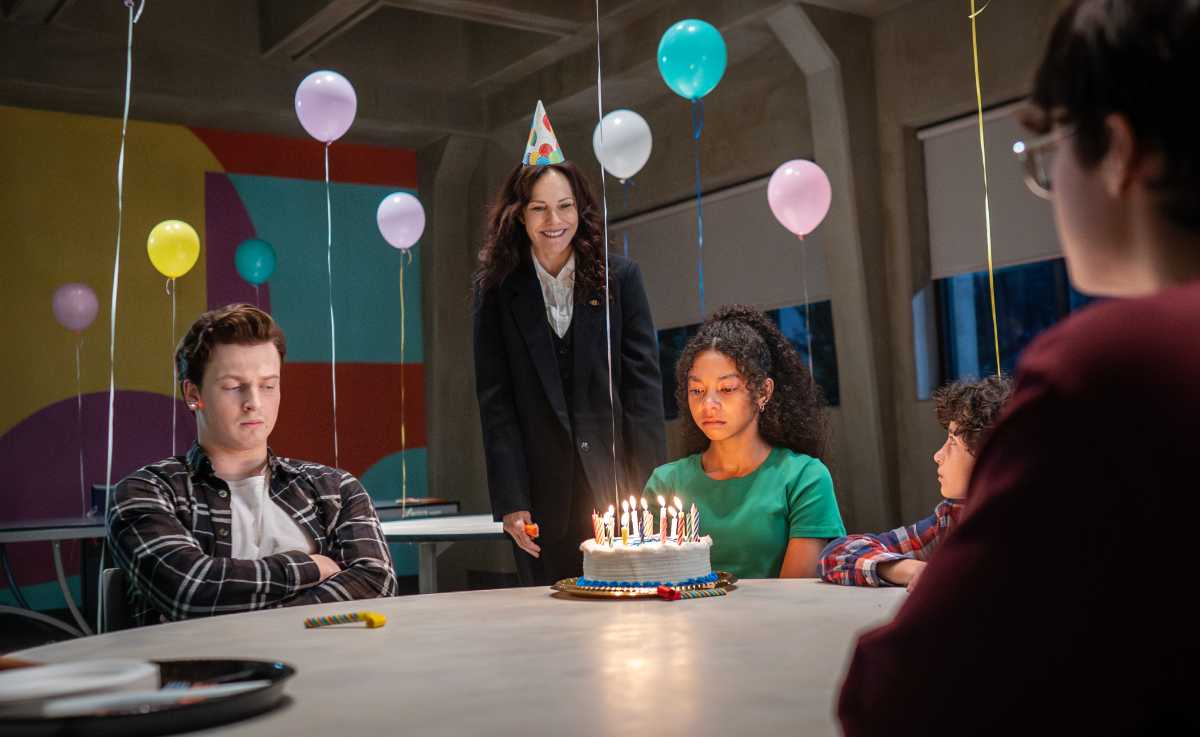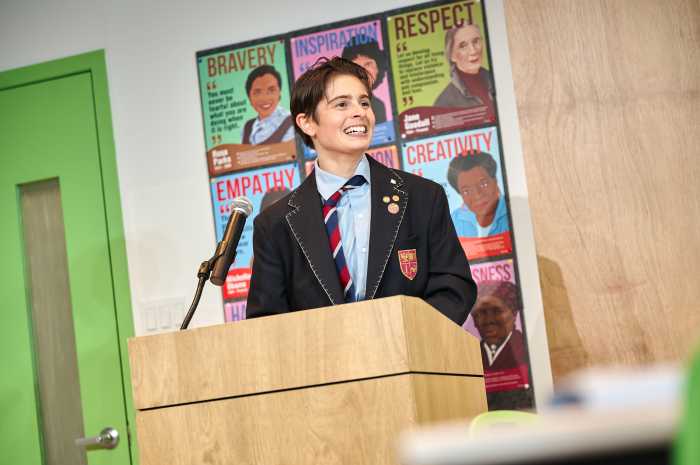
Filming "When They See Us" in a shuttered Staten Island prison, actor Jharrel Jerome sits in his cell between takes and stares at a piece of tossed gum as the minutes pass by. Eventually, he picks it up, walks to the other side of his small cell and sticks it to the wall.
He spends much of his time on set fully immersing himself in what Korey Wise may have experienced while serving 12 years behind bars for a crime he didn’t commit.
"Even when I wasn’t shooting, they would call cut and go to lunch, I’d stay in my cell to figure out what it’s really like to be in a cell doing nothing," Jerome, 21, says. "I brought the work home every day. I couldn’t sleep. Sometimes I couldn’t think about food because of Korey not being able to eat."
Jerome’s critically acclaimed performance in Ava DuVernay’s limited Netflix series about the prosecution, and later exoneration, of the Central Park Five has jolted the actor out of the darkness of a prison cell and into the Hollywood spotlight.

Unlike the rest of the Central Park Five cast of "When They See Us," Jerome is tasked with portraying both young and older Korey Wise, a stretch that spans more than a decade. While his co-stars — Ethan Herisse, Asante Blackk, Caleel Harris, Marquis Rodriguez — all have another actor to toss ideas around with, Jerome is on his own, just like Wise was while in jail 30 years ago.
"It was just me. So, I felt a lot of pressure and a lot of that responsibility," Jerome, who starred in "Moonlight," says. "I indulged in that loneliness."
The New Yorker spends much of his camera time in prison cells across the city and state to create the series’ powerful fourth and final episode. It depicts Wise’s turbulent sentence, mental health struggle and experience with violence at the hands of fellow inmates and guards.
"I walk from one side of the cell to the other, which is not much, and twiddle my thumb until Ava comes back, or the PA comes back and says, ‘we’re ready for you,’ " he explains. "Then, I slip back into the realization — oh, I’m on set here, but what the hell did I just do with how much time has passed?"
A half-hour.

That’s how much time Jerome spends alone in the cell during his break, staring blindly at the wall of his cell. Filming takes him to the shuttered Arthur Kill Correctional (also used for "Orange is the New Black"), as well as to cells in active prisons in Valhalla (Westchester County Correction) and Queens.
"A half an hour felt like three hours, so I can’t even imagine Korey spending 12 years," he says.
For Jerome, the solitude isn’t the hardest part. It’s coping with filming inside active prisons.
"There were moments where I was walking back to my trailer and I had to hug the wall because there were real inmates coming through," he says. "I actually learned the color system," he adds, explaining that red jumpsuits mean "murder or drug dealing," while green is a "minor offense."
"I remember walking by them and I had this terrifying feeling of like, oh my god, these men are dangerous. And then I thought, there’s America’s mindset I just got thrown into right there."
He shakes his head and looks down, expressing disappointment that he felt — even for a moment — that all of the men around him were dangerous.
"Maybe they threw that red on him and he deserves the green. The fact that they even categorize these men into levels has had a major toll on me."
It reminds him of the Central Park Five themselves.
Raymond Santana, Yusef Salaam, Kevin Richardson, Antron McCray and Korey Wise were charged in connection with the Central Park rape of 28-year-old investment banker Trisha Meili in 1989, despite a lack of evidence. Their case rode on confession tapes they insist were coerced. They served between 6 and 13 years in prison and were exonerated of their crimes in 2002 when Matias Reyes confessed.
"It was a lot for me, living right in the middle of the city where you see a cop every day," Jerome says. "You’re walking around and then you feel like you’re walking among enemies, you know? All of that really taints your experience on life but teaches you so much. That’s what the show did for me. It knocked my naiveté out."
"When They See Us" is currently streaming on Netflix.





































